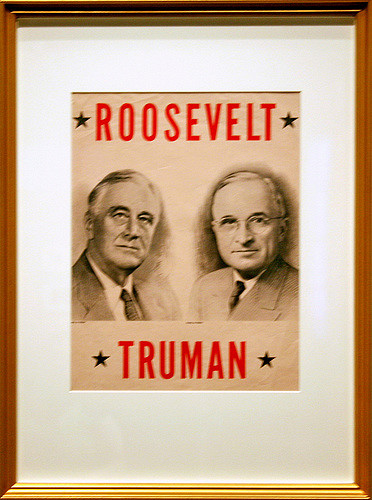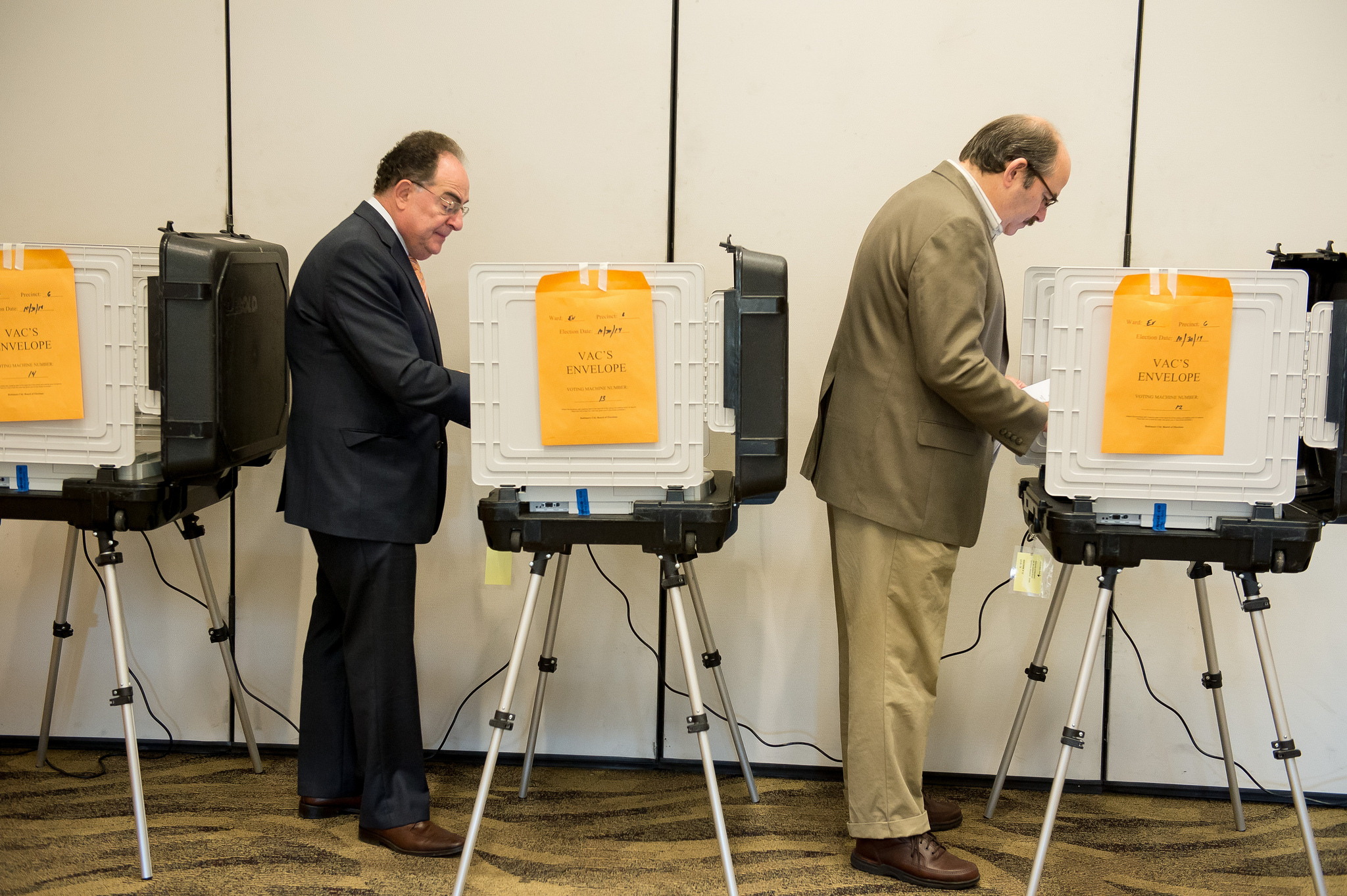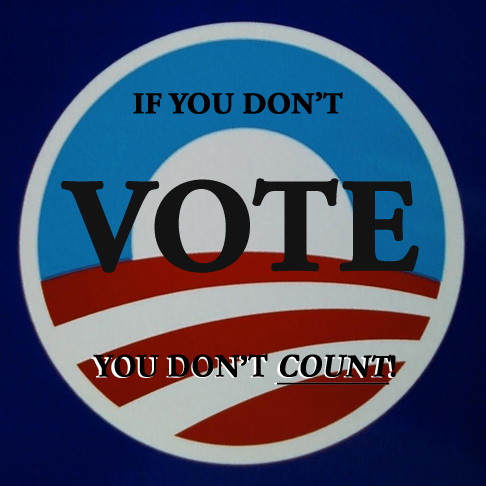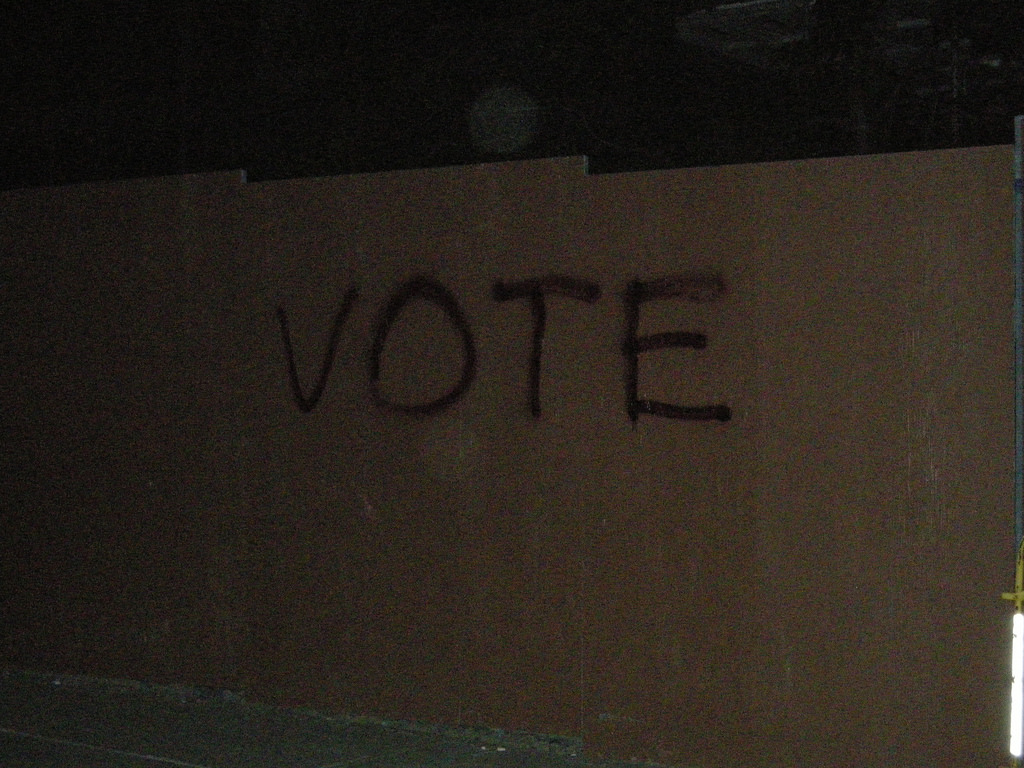The revulsion is perhaps a version of the “uncanny valley,” that experience of disturbing familiarity when a simulacrum of a person comes close to impersonating human behavior, so close that its true inhumanity is suddenly illuminated. It’s like that when the current president gets something right.
And yet he is in no small part the president because he got a single thing right. In proposing to make America great again, he conceded that it was no longer great. Didn’t just concede it, didn’t just gesture toward transient difficulties and doldrums in the manner of Jimmy Carter’s “Malaise Speech” in 1979—which some suggest cost him the presidency. Nearly forty years later, Donald Trump made serious and ongoing national decline the basis of his claim on the electorate. It was evening in America, that was his position. As a claim, oozing forth from his mental torpor, it was inseparable from his misogyny, his racism, his slough of resentments. It was surely designed to mobilize toward electoral politics that purest kernel of violence: a sense of lost privilege, especially for white men, a sense of grievance long entangled with his party’s campaign strategy, given a new and serrated intensity.
But the claim was also objectively true. It was true in ways distinct from these resentments, registering the nation’s waning capacity to accumulate wealth, to command an international order toward its own interests, to conjure better life chances for the majority of citizens than were had by previous generations. It was a dark bloom of truth in a thicket of lies. That America was no longer great was the truth that his opponent could not admit and thus could not plausibly counter, a salient and central incapacity that underscored her remarkable lack of electoral savoir faire. She had no offering for those who heard MAGA as a dog whistle for their hate, and who can blame her? But she also had no offering for those living the decline. And so here we are.
Here we are, and for those disinclined to accept these real transformations as explanatory, there is a great temptation to blame some specific set of voters for our current predicament: racist voters or, perhaps the same thing, Trump voters (though Trump did no better than Romney among the white electorate); or third-partiers; or nonvoters (of which more, uh, anon). Very well. Let’s accept that voting is the problem. But a serious problem, a total problem. Not just some voters—voting.
Let’s consider the outcome from the perspective of voting as an institution. It will lead us to the most obvious and inarguable conclusion: it was voters as a whole who lofted the current president into office. Had no one voted, we wouldn’t have this problem. The fact that some people cannot imagine such a thing is a real failure.
I don’t mean to pass over this casually. The proposition here is not just that voting happened to deliver us into our current presidential predicament—nine figures’ worth of people voted and this is what happened, I was on the other team, gotta take the bad with the good, some truism like that—but that voting effectively guarantees such outcomes and will continue to do so. When you vote, you are voting for this. This might not always have been true but it is true now for specific historical reasons. My hope is that readers will be capable of entertaining this proposition, and the thought experiment that goes with it. Which is a way of taking voting seriously while also taking into account the actual circumstances of the world as they existed in 2016 and as they are likely to develop over the lives of the voting population. This is not an argument about democracy as such, but about the destructive and assured consequences of the peculiar political form into which we have fallen, a form that may not deserve the name democracy at all.

I know that this article will generate angry emails, and they will feature arguments that not voting is in effect voting for the winner, or swings the election, or related arguments that often seem to depend on data and logic and we could debate the actual numbers or the nature of sophistry. However, the great majority of such responses will be underwritten by a certainty that the basic case is self-evident, that there is no alternative, that there is a forever politics in which the scope of human possibility is defined by an elephant and a donkey that in the most utopian of outcomes we can persuade to take a half-step in one direction or another, proceeding at a pace that is, in relation to climate collapse, slower than standing still. It is exhausting for everyone to waste their efforts on what is in effect a prelude to a debate, a debate about whether the matter is debatable. Contrarily, it seems useful to start from the idea that these matters are thinkable, to abandon the set of assumptions and presuppositions about what can and cannot be imagined. This is the relevant definition of ideology: not party affiliation, liberals and conservatives, but an invisible framework that includes and excludes automatically, a set of unexamined beliefs that think our thoughts for us, in advance.
I want to be clear from the outset: this rather straightforward argument is not about moral purity, about being able to wash your hands of the fact that whoever is elected will order extrajudicial killings of teenagers and engineer coups and suppress global wages and so on. That seems like an individualist politics with little persuasive force, just as the accusation is an expression of anger at being forced to swallow realpolitik and pretend you believe it. Anyway, no moral purity here. This is a practical argument. It is an argument about desperately necessary outcomes. The route to substantially and broadly diminished immiseration and the preservation of a habitable planet cannot be traveled via voting more, voting harder.
The thought experiment begins like this: let’s consider the practice from the perspective of voting as a thing, a unitary process, like the market, or the ecology. The goal is not to think from the perspective of partisan politics, of trying to win a given vote—but to suppose that voting, the electoral process in its entirety, is a kind of agent.

It’s not an easy mind flip. It is akin to the challenge of grasping “structural racism,” an idea that denotes not that everybody within a structure has racist beliefs (though they may), but that the social structure itself guarantees that fundamentally racist consequences will be imposed on some and not others—no matter what any individual thinks. How you can be so woke that you literally never sleep, and how nonetheless you have a limited paycheck and have to buy your kid’s T-shirts at Target to keep them clothed, and how that means supporting the superexploitation of Haitian laborers. The structure is the agent, and like all structures it wants to survive, to preserve its own viability, so it solicits your participation with everything at its disposal. This is not to ignore that there are vile people getting many satisfactions including sacks of cash from the operation of the structure. It’s just a way of thinking about how cause and effect work at the level of an entire system, in ways that extend beyond the characters of individual actors.
In this view, we might think of Donald Trump as a candidate for Democrats, toward the larger goal of being a candidate for voting’s self-preservation. After the failure of Barack Obama, despite a vast upswell of hope, to exit the corporate security-state framework, one could understand and even predict that a great mass of progressives would lose faith in the ballot box. And not just progressives. How many people, sympathetic to the Movement for Black Lives or opposed to systematic deportations, concluded that if Obama could not forge one, there was no electoral path toward even the most limited goals? Likely you encountered this exhaustion of faith, and heard the words, some time after 2008 or 2012, “I’m done with this shit.” Enter Trump.
From the perspective of voting itself, Trump’s great historical function was to provide a reason for staying in the game, to offer a specter so horrifying that one trudged into the voting booth one more time. Hillary Clinton, we must admit, played much the same role for Republicans; in the end it seems clear that they had stronger feelings about her than did the Democrats. Each candidate elicited the insistence that this was the most important election ever, a claim I am old enough to have heard at regular intervals. The extraordinary vitriol of the campaign can be seen as part of this mechanism, a degree of dramatization that arose less from the characters of the candidates than from the need to produce a seemingly new and special urgency regarding participation. Each moment seemed unique, in distinct ways both primary candidates seemed unique, and yet each moment assured the opposite: the continuity of convention itself. Another four years, another crank of the lever. In the right’s present hysteria that liberals are anarchists, that corporate servant Nancy Pelosi is a communist, we can already see the latest iteration of the voting apparatus recommending its own necessity.
It is useful, I think, to experiment with this inverted perception—to imagine the process directing people rather than vice versa. The Brexit vote provides a crystalline example in the way that it managed to move progressive, leftist, even openly anticapitalist people into the position of urgently defending the virtues of the EU, the “economic community,” the most progressive form to date of ensnaring everyone in the meshes of the market. Not to say this position is wrong. It is what happened. People who wanted urgently to change the world were maneuvered into supporting the world as it goes. This is a way to think about elections as a system.
This thinking opens a route to take seriously the nearly 100 million people who did not vote in 2016. At that scale, the scale of reality, the “moral purity” accusation collapses. It is easy enough, however, if you have already decided that voting is the sine qua non of engagement, to identify this as some failure of politics rather than as politics itself, to explain the refusal to vote via apathy, lack of information, nihilism. These explanations come dripping paternalism, the presumption being that it couldn’t be a political decision, this opting out. If they only knew better. So who are these people somehow unable to know better? The liberal demand to keep voting no matter what envisions not-voting as an expression of privilege: those most exposed to the storms of politics supposedly grasp the importance of seeking shelter in the voting booth.
This is a vacant idea on the face of it. We might consider the long history of social movements, queer, feminist, of color, that have abjured party politics. Erasing those traditions is indefensible, as is the idea that “unprivileged” communities are homogeneous in any regard, including a desire for the politics of representation. Moreover, the demographics of the 100 million nonvoters tell a different story about who feels summoned by the electoral call and who does not. They are younger, more racially and ethnically diverse, less educated and less affluent. Lest you seize on lack of education as the crucial variable, note that this seems mostly to be a negative correlation with wealth and particularly with homeownership. In the main, nonvoters are less rich and less white. Are you sure this is the population you want to insist is doing politics wrong and just needs some democrasplaining?
In thinking with, rather than against, these 100 million people, I want to return again to the actual situation. America is no longer great. The world at large seems incomprehensibly volatile. Each day there is some new upheaval. The toad in the White House, exactly because he is unique in his capacity to embody every manner of corruption mental, physical, and spiritual, seems like he must be behind it. So says our paper of record, the New York Times: three days before the end of 2017, they wrote, “President Trump has transformed the world’s view of the United States from an anchor of the . . . international order into something more inward looking and unpredictable. That is a seminal change from the role the nation has played for 70 years, and it has lasting implications for how other natures chart their futures.” Underscored by the intuitive connection between an unstable person at the core of power and an unstable world order radiating outward from that core, this description feels true.
And yet it is in every regard a fantasy. It is a fantasy about the role of presidents in specific, and in general about what is sometimes called “political will,” about what this will can and cannot do. This is the structure of political fantasy more broadly. Even as it excoriates the current boss, it affirms for us that our predicament is his doing, and since he is our doing, we can undo it by undoing him. We can get out of this mess the same way we got into it. The world can be orderly and sensible again. In a great inversion that hums in the hindbrain with the charge of unsayable revelation, we can make America great again exactly by casting this motherfucker out. We just need to win.

Against this bright fantasy we have nothing but the darkness of reason. If this transformation comes with Trump, how can Trump have arrived at the thesis statement “Make America Great Again” before being elected? How can this collapse of global prestige be caused by the very personage who was its consequence? It can’t, and there’s little cause for confusion. This trajectory has been common knowledge for some time. Here, to choose only one example, is the historian Giovanni Arrighi: “The new imperialism of the Project for a New American Century probably marks the inglorious end of the sixty-year-long struggle of the United States to become the organizing centre of a world state.” The language is not that of a daily paper; they are talking about the exact same thing. The phenomenon the Times describes is precisely what Arrighi names “hegemony unraveling”: the inability to organize the world according to US interests. The only difference is that the late historian thinks the period of America’s greatness as guarantor of the global order began 60 years ago, while the Times says 70. But then, Arrighi was writing in 2005.
The course since then has only become clearer. The bubblenomics that have held sway since the seventies have tanked a vast portion of the population. Periodic reports of a recovery, doled out like ampoules of morphine to a terminal patient, ease the basic facts perhaps best summarized by the so-called yield curve, the government’s cost for borrowing money over varying time periods. The differences gauge the real expectations for economic growth and oh honey there are none. Internationally, when the US wants other nations to do its bidding it can now only threaten force; the soft diplomacy that characterizes working empires belongs to last century. International coalitions of the willing have downsized like a family that lost a three-bedroom house in 2007. This isn’t malaise. Neither is it temporary volatility. This is a long and shaking trend line downward.
The implications for voting are fairly straightforward. While he may goose the enthusiasm levels at Klan meetings, the current president, for reasons beyond his own incompetence, cannot deliver on any commitments to make anything great again. The fifties were only great for certain people but let’s pretend that was the golden age. Historical conditions, long-term and irreversible systematic developments, are what make this moment distant from that—not the shambles of a man in office. His inability to deliver on much of anything is already evident. Trump has lost ground among almost every imaginable category of voters—and he is shedding support at critical rates among private-sector workers and the unemployed. If his presidency survives to the next election he will be voted out abruptly.
But this will likely not be a return to the centrist compact. As the descent continues, the fantastical solutions will intensify. It will be the most important election ever; we will be told this ceaselessly. The party of Trump will be rebuked. Whether it is Warren or Harris or Gillibrand, the oscillation will be in full swing. We see it already in the first tender victories of Ocasio-Cortez et al, which are not anomalies, but neither are they historical repetitions from the era of labor movement power. They are the metronome’s swing as people cast about in the new bad times, and in 2020 we will hear the new tick. And perhaps in this moment, progressive voters will feel, after losing so brutally, that they have won. The winning team will spend 30 months stumblingly trying to undo whatever the current administration has achieved in their inspired program to undo whatever was done by the previous administration. But the promises that they will have had to make, they also will find themselves unable to keep. Trend line. As life expectancies diminish across the nation and upward mobility recedes into memory, an even more vile figure will rise up from the blood-dimmed ruins of the right, with an even more dramatic claim on the denizens of decline. It will be the most important election ever.
If we take a breath and a step backward, if we look from the perspective of the whole rather than the party, if we consider a 40-year horizon rather than a 2- or 4- or 6-year one, we can see that this oscillation is a collective effort—that it is the aggregate consequence of voting, that the Warren voter and the Cruz voter are working together on a single long project. It will be more destructive some years than others, no doubt. Still to vote is to sign on to this motion, a motion not of moral but practical catastrophe. Oscillating, but downward, like a sine wave to hell. No amount of voting harder will change this, because no president, or senator, or school board, can change the trajectory of national decline. No global power, once it has lost its charismatic grip on the larger political order and its capacity for economic expansion, has ever recovered. It’s not a thing.

That is not to say there is nothing to be done, that we should be without hope. There is no claim here that things cannot change, that any form of political organization should be abandoned. Only ideologues will hear that. The opening when it comes will not come from the closed booth. It is often said, with much self-serious stroking of beards, that not voting betrays a kind of nihilism, an abandonment of political possibility. This truly is the world stood on its head. Sustaining the fantasy that voting can change the direction of this decline, when it is apparent instead that in our present straits it guarantees such a course, is the purest nihilism. That it feels participatory is neither here nor there. Collective nihilism is no better than the lonelier forms of despair.
It feels important, in puzzling through these matters, not to fall into the exact illusion of political will described above—not simply to substitute some new prescription in place of the old. More vital by far to make an accurate survey, to understand what is possible and what is not possible, where the dead ends and where the room to move. To abandon the electoral system we have inherited, which preserves nothing but itself, would be the beginning of realism. And the beginning of realism is the end of nihilism. It would open up an array of political possibilities, some dangerous, some hopeful, some both. Some will have lives pleasant enough that this feels too risky. That won’t last. Meanwhile, it seems worth pointing out what should be obvious: that the immiserating orderings of society have never been voted away, but that electoralism—for all the plaintive promises that we can both rabble-rouse and ballot-box—has regularly served as a mechanism of capture for potentially transformative social movements.
This much is clear from the perspective of larger developments and trajectories, what we have been calling history. Only from within the narrow limits of the vote does our present disaster appear to last forever. Every seeming escape is its opposite. At the end of 2017, the Democrats won an implausible victory, taking an Alabama senate seat that the Republicans had long maintained with ease. The loser, fake cowboy theocrat Roy Moore, had been accused persuasively of insistent sexual pursuit of underage women. This blue victory in a red zone seemed to presage great things for the resistance. It seemed like a tidal shift, a great swing, a pivotal moment, choose your metaphor. Trump, who had in the end thrown his support behind Moore, took the loss in good spirits. He may not understand basic facts or the news or very much at all, but he managed once again to get something right. “Congratulations to Doug Jones on a hard fought victory,” he tweeted, making free with the new 280-character count. “The write-in votes played a very big factor, but a win is a win. The people of Alabama are great, and the Republicans will have another shot at this seat in a very short period of time. It never ends!” And so to the uncanny valley we return.






